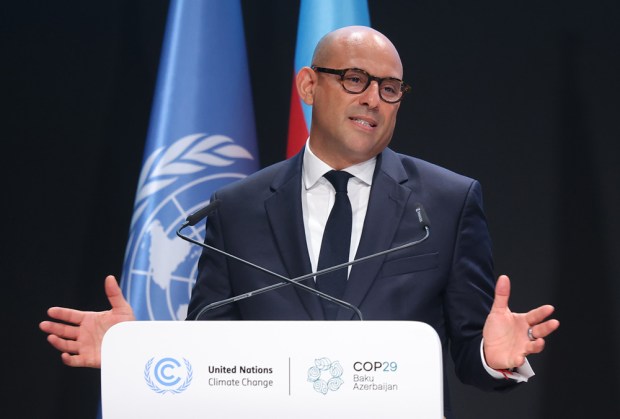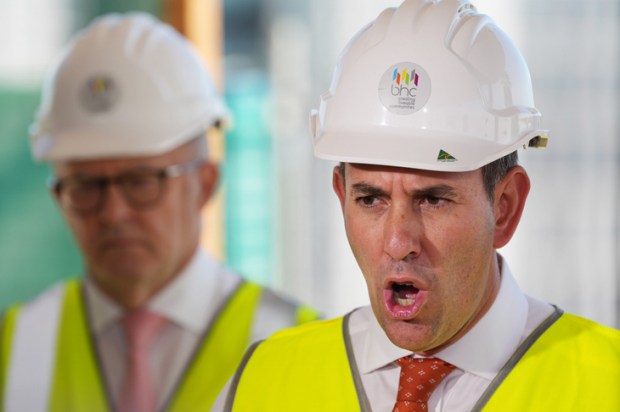This magazine rarely misses an opportunity to criticise the ABC. So readers may be surprised to find us defending Aunty at a time when our conservative friends are taking aim at the public broadcaster. Apparently the ABC’s sin was to team up with the Guardian Australia on 18 November to air intelligence secrets that Australia spied upon the Indonesian President and his inner circle, including his wife. But defend the ABC we must, and it is important to keep in mind a key issue at stake: the principle of editorial independence.
But first, does anyone seriously believe the Guardian Australia would have refrained from publishing the revelations without the ABC on board? It is a big story, analogous to the sensational revelations that the US had monitored Angela Merkel’s mobile phone for over a decade, and no self-respecting editor would have turned down the opportunity to be a part it. The only reasons not to do so would have been if the story were unverifiable, if lives were directly threatened or privacy or grief unacceptably intruded upon.
The argument that Australian lives are indirectly endangered — via Jakarta’s decision to suspend co-operation with Canberra on intelligence matters and stopping the boats — is easy to make in hindsight, but not sustainable. It is not the job of journalists to gaze into a crystal ball and be guided by all possible ramifications. Besides, we take news director Kate Torney at her word when she says the ABC took advice from our intelligence authorities and ‘redacted sensitive operational information that may have compromised national security.’
Then there is the politically inconvenient timing. It has been unfortunate for a recently elected prime minister to deal with these four-year-old allegations just as he is trying to forge closer counter-people smuggling links with Jakarta. But the suggestion the ABC ‘sat on’ the story is ludicrous to anyone who’s worked in a newsroom. We don’t doubt that a majority of journalists at Ultimo or Southbank instinctively lean left, but it stretches credulity to imagine they sit around in dark corners to do harm to a conservative government. Would those protesting about the bad timing be squealing if the Australian ran the same story prior to the 7 September election?
Finally, the question of the ABC’s suitability to run the Australia Network in the light of this controversy. This is a furphy. That the ABC has under its umbrella an organisation whose role apparently includes ‘soft diplomacy’ is irrelevant to the overarching responsibility of the main organisation to report the news as it sees fit without fear or favour. If a public broadcaster were compelled to act as mouthpiece for any government, it would damage the principle of editorial independence.
So, yes, it is disconcerting, if also predictable, to see the usual suspects seize on the media hoopla to blame Tony Abbott for deteriorating relations with Indonesia. But it is also unfair, and frankly absurd, to blame the ABC. Aunty is merely behaving as any media organisation, publicly funded or otherwise, should do in a well-functioning democracy free of government interference.
Everybody knows
He skips across the stage, sweating his way through three hours of pounding rhythmic songs, mesmerising the crowd with hit after hit and coming back for an astonishing three encores. Just like he did the night before and will repeat every night from Adelaide to Wellington. The surprise? He’s 79!
Perhaps the Productivity Commission felt suitably inspired by Leonard Cohen’s phenomenal stamina during his current tour to trot out the idea that we should all be putting off our retirement ’til we’ve turned 70. Needless to say, the mere suggestion went down like a full colostomy bag among the luv-media, who see it as their God-given right to have somebody else (preferably the taxpayer) support them through several decades of self-indulgent retirement, which they have ‘deserved’.
Yet as everybody knows, including Joe Hockey in his more honest moments, we are living in an age of entitlements that cannot endure. Something must give. When the retirement age was first set at 65, most men (and many women) worked in physically exhausting and even debilitating manual jobs; often they were simply not capable of working any longer. These days, not only are the majority of jobs less physically demanding (apart from RSI and headaches caused by spending too long at the computer) but life expectancy rates continue to increase dramatically.
At least someone finally has the guts to point out that older people’s experience and skills should be a boon to society rather than a burden. As Leonard would say: ‘Hallelujah’.
Got something to add? Join the discussion and comment below.
You might disagree with half of it, but you’ll enjoy reading all of it. Try your first month for free, then just $2 a week for the remainder of your first year.












